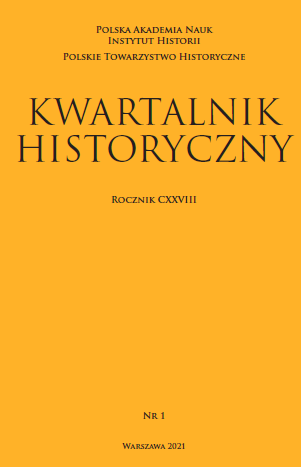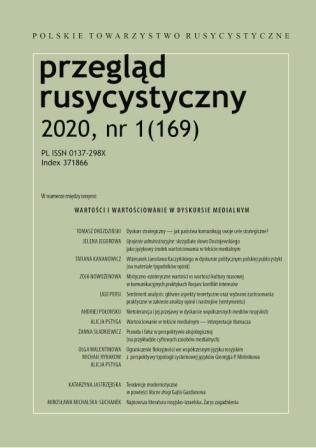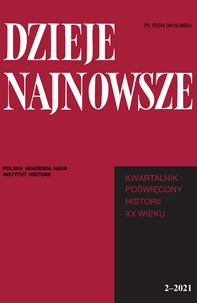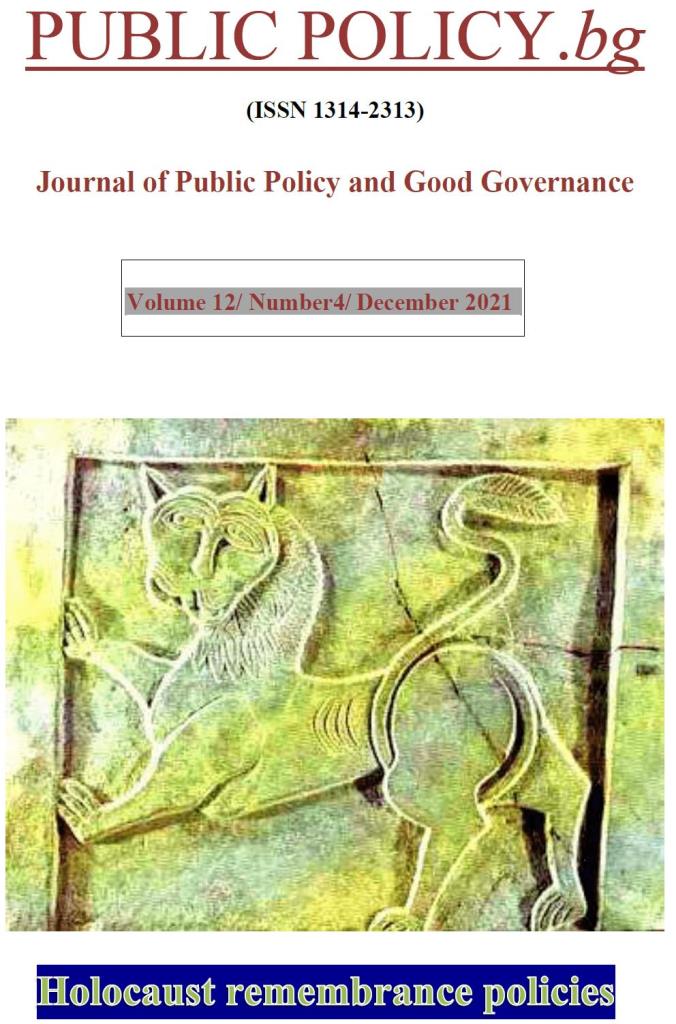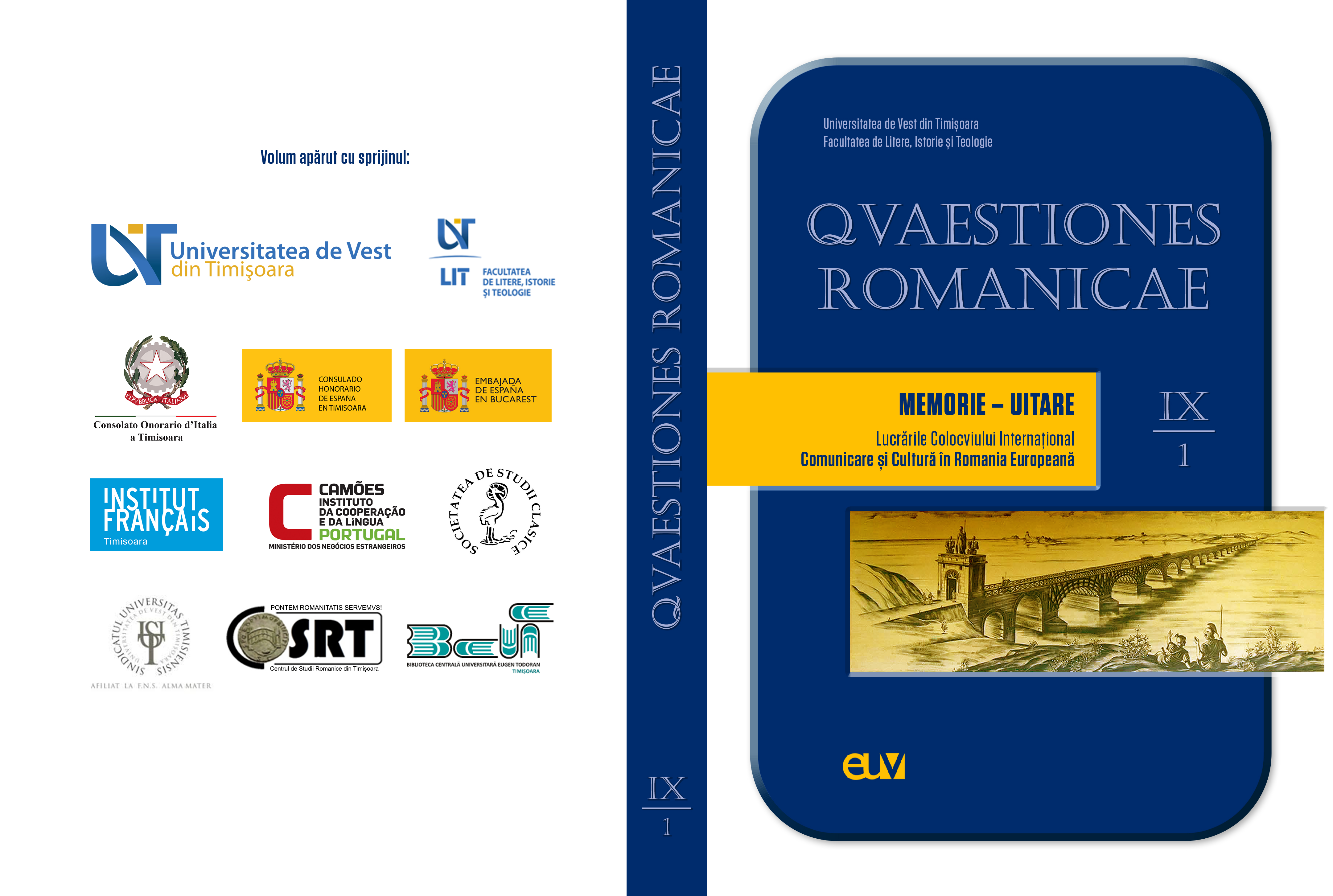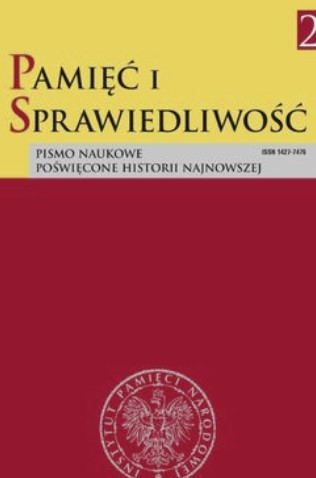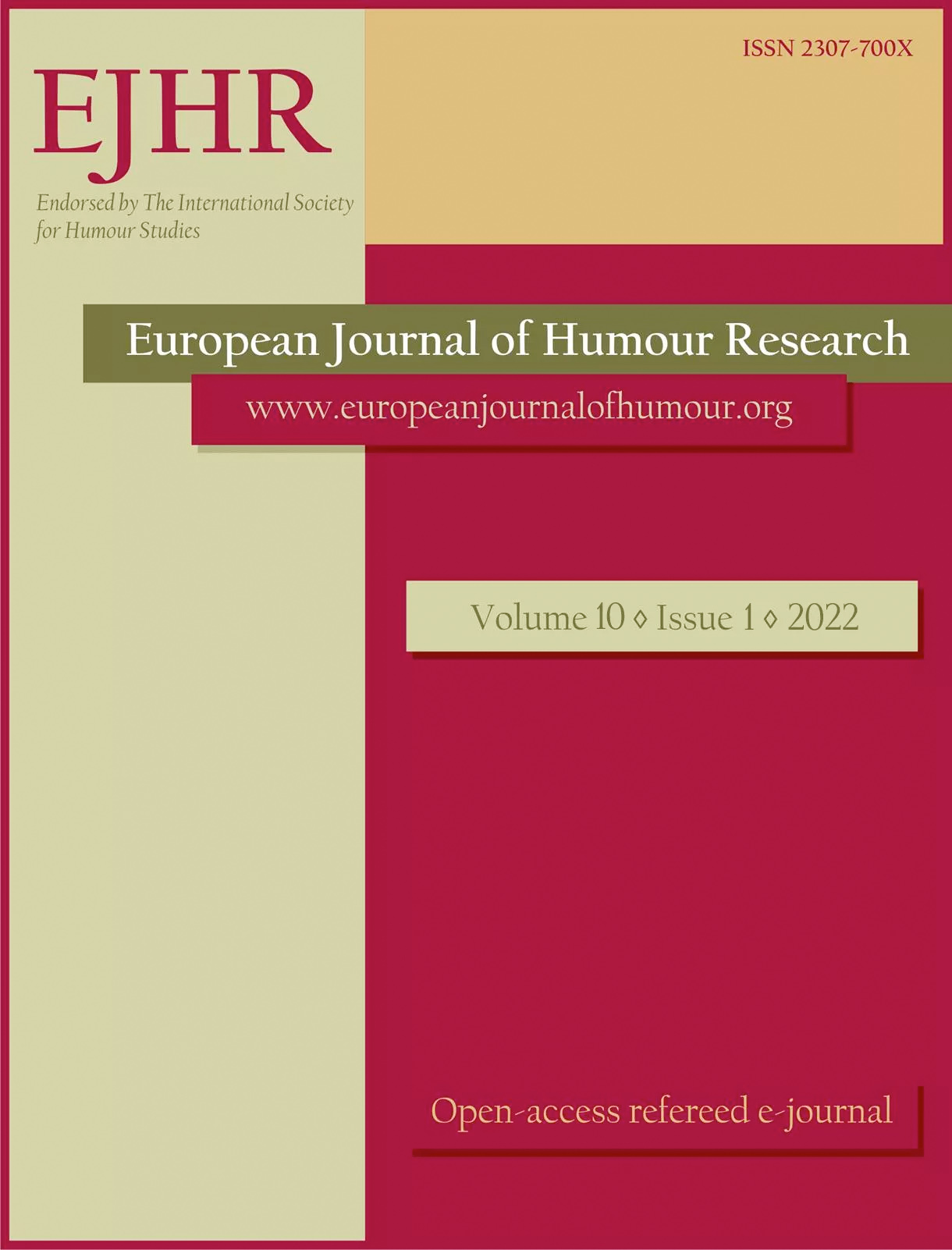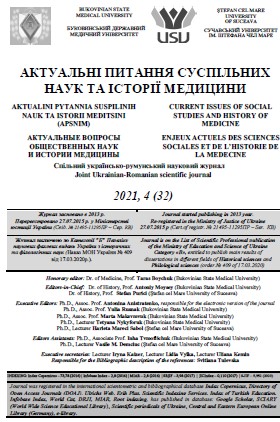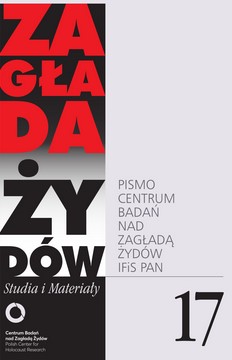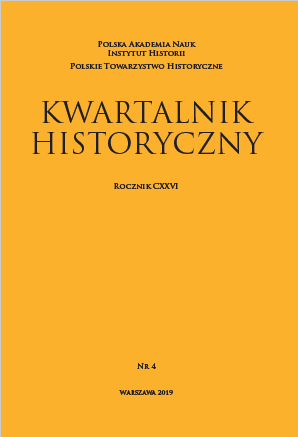
„Wykazują najwyższą skłonność do emigracji”: exodus Żydów z Imperium Rosyjskiego. Mikrohistoria wybranych sztetli Podlasia
In 1881–1914, two million Jews emigrated from the Russian Empire, with 78 percent of them settling in the United States of America. The article focuses on the local dimension of the great migration. Two towns in Podlasie (Bielsk and Orle), mostly inhabited by Jews, serve as the case study. An attempt is made to estimate the size of the Jewish migration and to reveal its anatomy, including questions related to getting passports, illegal border crossing, and the attitude of the authorities to the Jewish exodus.
More...
